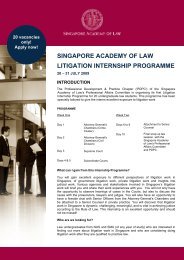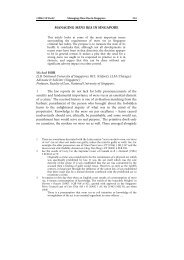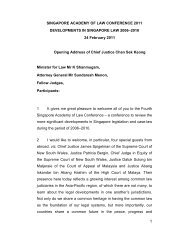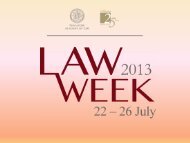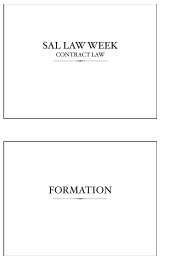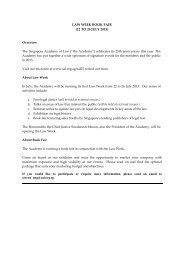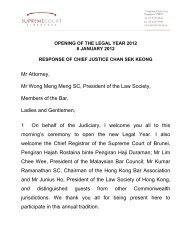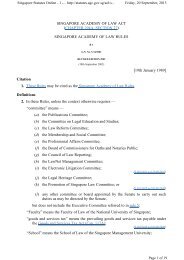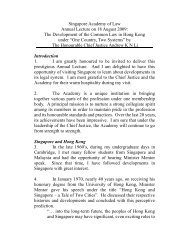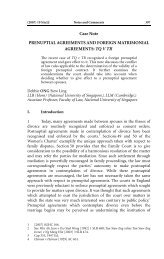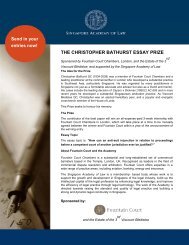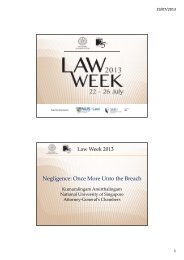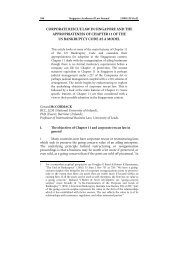View Article - Singapore Academy of Law
View Article - Singapore Academy of Law
View Article - Singapore Academy of Law
You also want an ePaper? Increase the reach of your titles
YUMPU automatically turns print PDFs into web optimized ePapers that Google loves.
15 SAcLJ Matrimonial Assets and the 3 rd Party 265<br />
liable for the mortgage instalments, and when she paid <strong>of</strong>f the mortgage,<br />
would be entitled to call for the transfer <strong>of</strong> the full legal and beneficial<br />
ownership <strong>of</strong> the property to her. On the hearing <strong>of</strong> the wife’s property<br />
adjustment order application, the registrar ordered that notice be given to<br />
the husband’s aunt. Subsequently, leave was given to the husband’s aunt<br />
and the husband’s mother to intervene in the wife’s application, which<br />
they duly did. The husband’s aunt gave evidence at a “very full<br />
hearing” 94 before the registrar, and subsequently at the appeal hearing.<br />
The appeal court found that the wife had no claim to the property except<br />
to the extent that the husband had contributed to its purchase. A few days<br />
before the judgment was given in the appeal, the husband’s aunt issued a<br />
writ in the Chancery Division claiming that she was entitled to an<br />
interest in the property against the husband and wife. The wife put in a<br />
defence and counterclaim. The Court <strong>of</strong> Appeal held that the wife was<br />
estopped from asserting that she was entitled to a share in the equity <strong>of</strong><br />
the house:<br />
The principle involved is that <strong>of</strong> issue estoppel. A person should<br />
not have to fight all over again the selfsame issue that has been<br />
decided before, provided that the party against whom the<br />
estoppel is raised has had a fair and full opportunity to<br />
contest the issue, so that it would not be just to allow him to<br />
reopen the matter in subsequent proceedings. (per Brightman<br />
LJ, supra, at page 244 b-c)<br />
4.6.2 In respect <strong>of</strong> a non-party without notice<br />
118 It appears that only parties to an action are bound by issue<br />
estoppel. 95 A non-party without notice <strong>of</strong> the proceedings will not be<br />
bound, as he would not have had a “fair and full opportunity” to contest<br />
the matter.<br />
4.6.3 In respect <strong>of</strong> a non-party with notice<br />
119 But if a non-party was given due notice <strong>of</strong> the proceedings, and<br />
had a “fair and full opportunity” to join the same, but failed to do so,<br />
should he be bound by issue estoppel subsequently<br />
94<br />
95<br />
per Brightman LJ, at p. 243 f-g.<br />
Supra note 91, at p 110.



